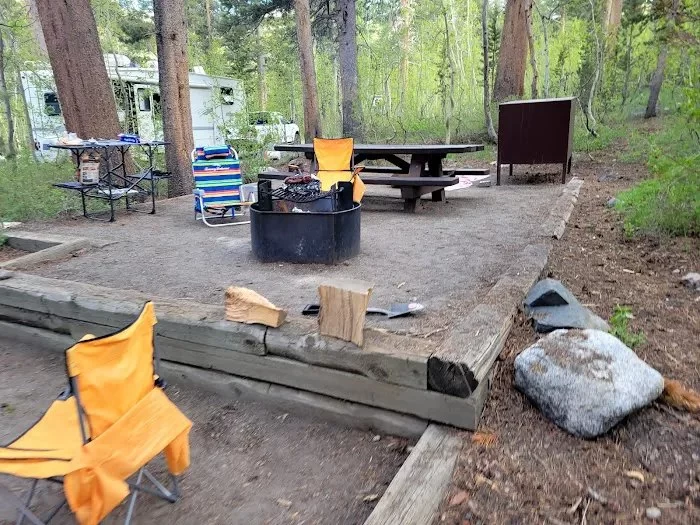Learn how to organize your camp pantry for efficiency and convenience. Discover real-life camping hacks, food storage tips, and smart meal prep strategies from Pine Cliff Resort.

- 1 - Why Pantry Organization Matters When Camping
- 2 - Start with a Plan: Assess Your Space and Needs
- 3 - Smart Storage Solutions for a Camp Pantry
- 4 - Meal Prep Efficiency: Save Time and Reduce Waste
- 5 - Keeping Food Safe and Fresh Outdoors
- 6 - Real Camper Experience: A Lesson in Simplicity
- 7 - Pine Cliff Resort Recommendations for Camp Cooking
Why Pantry Organization Matters When Camping
Whether you’re staying in a tent, camper, or cozy cabin, your camp pantry is the backbone of your outdoor cooking experience. When supplies are disorganized, meal prep becomes stressful, and valuable time outdoors gets lost to frustration. Efficient organization keeps food safe, reduces waste, and helps ensure every mealtime goes smoothly—even miles from the nearest store.
At Pine Cliff Resort 【 】, many seasoned campers share one piece of wisdom: “Your trip’s success often depends on how well you packed your pantry.” From labeling bins to pre-measuring ingredients, organization transforms camping from chaotic to carefree.
Start with a Plan: Assess Your Space and Needs
1. Evaluate Your Cooking Setup
Before you start packing, think about how and where you’ll be cooking. Are you using a camp stove, grill, or fire pit? Each setup has its own storage needs. For example, campers using portable stoves often prefer stackable bins to keep utensils and fuel nearby.
2. Categorize Essentials
Divide your pantry into key sections: dry goods, condiments, snacks, and breakfast staples. Using small containers or resealable bags helps prevent clutter and spoilage. Label everything clearly so you can grab items quickly without digging through boxes.
3. Plan Meals in Advance
Meal planning saves both time and storage space. Create a simple day-by-day menu and pack accordingly. This ensures you only bring what’s necessary—no overpacking or forgotten ingredients. Campers often find that pre-portioned pancake mix or pre-marinated meats simplify mornings and evenings alike.
Smart Storage Solutions for a Camp Pantry
1. Use Clear Plastic Bins
Transparent bins let you see what’s inside at a glance, saving time during meal prep. Stackable bins with locking lids are ideal for keeping dust, bugs, and moisture away from food supplies. Many campers recommend labeling each bin by meal type, such as “Breakfast,” “Lunch,” and “Dinner.”
2. Optimize Vertical Space
In compact camp kitchens, every inch counts. Hanging organizers, collapsible shelves, and carabiners can turn vertical space into valuable storage. For example, mesh hanging baskets are great for fruits and bread—keeping them off the ground while allowing airflow.
3. Create a “Grab and Go” Snack Box
Having a dedicated box for trail mix, protein bars, and fruit keeps snacks accessible. This is especially useful for families with children who need quick energy during hikes or swims. One camper at Pine Cliff Resort shared that her snack box “stopped 90% of the hangry meltdowns.”
Meal Prep Efficiency: Save Time and Reduce Waste
1. Pre-Chop and Pre-Measure
Chopping vegetables and pre-measuring ingredients before you leave home minimizes mess at the campsite. Store items in reusable silicone bags or containers labeled with the meal name. This method not only reduces prep time but also minimizes food waste.
2. Embrace One-Pot Meals
Efficient camp cooking doesn’t require gourmet effort. Dishes like chili, stir-fry, or pasta are perfect for one-pot preparation—saving space and cleaning time. Always include a few “emergency meals” such as canned soups or instant rice for rainy days or late arrivals.
3. Keep a Small “Spice Kit”
A portable spice kit with salt, pepper, garlic powder, and your favorite herbs makes any camp meal taste gourmet. Small reusable jars or pill organizers keep everything compact and organized without taking up precious space.
Keeping Food Safe and Fresh Outdoors
Food safety is one of the biggest concerns in outdoor cooking. Always store perishables in a cooler with ice packs or frozen water bottles. Separate raw meat from other foods to prevent cross-contamination. For long trips, freeze meats before departure to keep them cold longer.
Keep coolers shaded and closed tightly whenever possible. Campers at Pine Cliff Resort 【 】 often recommend using two coolers—one for beverages and another for food—to reduce the number of times the food cooler is opened throughout the day.
Real Camper Experience: A Lesson in Simplicity
When lifelong camper Rachel shared her story, it resonated with everyone at Pine Cliff Resort. On her first camping trip, she overpacked—bringing ten cans of beans and four boxes of pasta “just in case.” By the second day, she realized her biggest challenge wasn’t cooking—it was finding what she needed.
Her solution? A labeled bin system and a strict meal plan. “Once I got organized,” she said, “I spent less time searching for food and more time watching sunsets.” Her experience proves that a well-organized camp pantry transforms not only your kitchen space but also your overall camping experience.
Pine Cliff Resort Recommendations for Camp Cooking
At Pine Cliff Resort 【 】, we encourage campers to treat their outdoor kitchens like an extension of home. Investing in proper storage containers, collapsible cookware, and an efficient layout pays off with smoother mornings and relaxed evenings. Organization isn’t just about convenience—it’s about creating more time for what truly matters: enjoying nature and great company.
Whether you’re a weekend camper or a full-season traveler, a well-planned pantry can make your adventures more enjoyable and stress-free. Small improvements—like using labeled bins, pre-portioning meals, and maintaining cleanliness—create a seamless outdoor cooking experience you’ll actually look forward to.
Sunnyside Guest Suite Mary
552 Fulford-Ganges Rd, Salt Spring Island, BC V8K 2K1, Canada
Visit Location PageCave Falls Campground
Forest Rd 006, Alta, WY 83414, USA
Visit Location Page